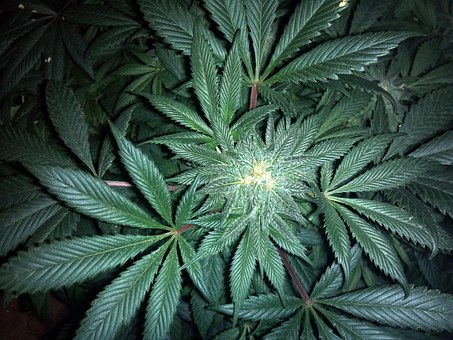The multifaceted hemp plant, a non-psychoactive relative of marijuana, is finally starting to gain widespread recognition for its many wonderful applications. Hemp farming has been a part of the economy for centuries and has led to advancements in fields like alternative medicine, material innovation, and agricultural development. Read on to discover the incredible potential of your newest photosynthetic friend.
Economic Values
Perhaps the greatest appeal of hemp cultivation is the vast array of byproducts that one can pursue. Hemp is an extremely versatile plant in that all of its parts can be converted into something useful. Just to name a few examples, hemp leaves and stems are often woven into durable fibers, hemp flower is typically infused into oils or tinctures as a broad spectrum medicine, and hemp seeds can be sold as a delicious source of protein and micronutrients.
The popularity of hemp merchandise is only increasing as public awareness spreads. The best news of all is that hemp can be planted in practically every region of the United States! It is profoundly resilient and grows rather quickly – some varieties can reach full maturity in just 75 days. If you live in an area with a relatively short growing season, this feature of hemp is especially advantageous.
Health Values
While hemp flower contains no psychoactive THC, it is the source of an astonishingly helpful compound known as CBD. CBD is closely related to THC in terms of its cannabinoid reception in the brain, yet it operates on a completely different pathway – one that does not have any mind-altering impact. CBD has shown remarkable anti-inflammatory properties, and countless studies have demonstrated its efficacy in treating anxiety, pain conditions, and even seizure conditions like epilepsy.
One can enjoy the mellow character of CBD through many means. CBD flower is often infused into oils, tinctures, salves, drinks, and food products for internal and external application. Even pets can enjoy the soothing effects of CBD ingestion, under veterinary recommendation. Many dog owners have noticed that regular CBD supplement administration offered significant relief for their traumatized or terminally ill canines.
For hemp growers, the realm of CBD flower cultivation alone is infinitely full of prospective merit that you can offer to your customers. The market for it is already robust, and will only continue to expand. Don’t hesitate to get super creative; trying to come up with something brand new that people will love and rely on is always a worthwhile endeavor.
Environmental Values
You may be thinking this pursuit of hemp farming couldn’t get any better, but think again! Hemp plants are also genuinely beneficial to their immediate environment. First and foremost, hemp requires much less water than comparable cash crops. It is also resistant (though not invincible) to the majority of problematic pests, so little to no chemical spraying is required. That said, be sure to keep a close eye on your plants in case they do show signs of infection.
Most importantly, hemp cultivation can build soil structure in a number of ways. By recycling the unused parts of the plant back into the soil, one can return its essential nutrients to the environment for future growth cycles. The roots of hemp plants reach deep into the soil, holding it together and preventing erosion while simultaneously sequestering enormous amounts of carbon from the atmosphere. Hemp even aerates the soil, allowing other plants around it to breathe and mature more easily.
Those who are designing building materials made from hemp are finding that it is a marvelous substitute for plastic, paper, and concrete. Its efficient, low-impact role in these supply chains is deeply promising for future sustainable development.
Overall, there is very little risk involved with growing hemp. The plants are tough, tolerant, adaptable, and extraordinarily fruitful. For creative thinkers especially, this route of entrepreneurship can be extremely rewarding because it gives you lots of room to experiment and innovate. No matter which avenue of product development you choose, you are bound to reap what you sow by planting lots of hemp.









